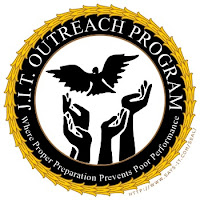- Education
In addition to special management and programming needs, youthful offenders need educational programming that is more structured, thorough, and intensive than that provided in adult institutions. It is important to ensure that facilities are both aware of and adhering to federal mandates to provide regular and special education services to youth in their care. Incarcerated youth are required to receive regular, special, and vocational education services in accordance with the state law for public schools, the rules and regulations of the state board of education, and the regulations of the 14th amendment of the U.S. Constitution and the Individuals With Disabilities Education Act (IDEA).
All youth should be offered an average of 5.5 hours of daily instruction, 5 days a week, by qualified teachers, in an environment that facilitates learning. Additionally, youth ought to be assigned to grade levels with curricula that are in accordance with their educational level, and they should receive academic credit for their educational achievements. Facilities should offer GED preparation and testing to qualified prison inmates and juveniles confined in jails for at least 6 months. Youth who are in disciplinary isolation or are otherwise unable to attend school for a significant period of time must be provided with a reasonable level of education services.
Federal regulations through IDEA guarantees special education services to juveniles (up to age 21) in adult facilities as a constitutional right. Although there are no national figures on the number of special education
youth who are incarcerated, it is estimated at between 30 and 50 percent require this service. A recent study by Leone and Meisel (2000) on the proportion of special education youth incarcerated in Arizona, Florida, and Maine indicates that between 42 and 60 percent of the juvenile populations are classified as special education. This estimate shows the importance of ensuring that adequate special education services are available to those juveniles who are incarcerated. Proper identification of youth with special education needs, exposure to special education curriculum, and teachers certified as special education instructors should be available to juveniles in adult prisons as well as those in juveniles facilities. Training and technical assistance programs could be developed in partnership with the U.S. Department of Education or the state’s education system.


No comments:
Post a Comment
Thank You!! Your comment has been submitted!!